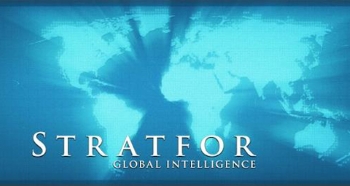http://www.thecitizen.in/index.php/NewsDetail/index/1/7109/India-in-Americas-Coils
BHARAT KARNAD, Friday, March 11,2016
NEW DELHI: It is a devastating turn of events – the indication that the Bharatiya Janata Party government will soon sign the three so-called “foundational” accords with the United States that Washington has been fiercely pushing in the past decade.
The Logistics Support Agreement (LSA) is first in line. The other two agreements are the CISMOA (Communications Interoperability and Security Memorandum of Agreement) and BECA (Basic Exchange and Cooperation Agreement for geospatial information and data).
LSA, the most significant of these, will permit the military forces of each country to resupply and replenish, and stage operations out of the other’s military air bases, land facilities, and ports. CISMOA will allow integration of the communications networks and systems enabling the two sides, for example, to mount military actions together, assist unit and higher echelon commanders to converse with each other in peacetime and war, using real time communications links, and to share classified data and information. BECA will, in the main, facilitate the exchange of sensitive information picked up by sensors on satellites and other space-based platforms.
There are some tactical military advantages to accepting some of these accords, such as BECA which will, with digitized maps, cue Indian missiles and combat aircraft to target coordinates. But there are many more negative geopolitical and strategic consequences to becoming America’s military ally in all but name. These aspects have not been publicly discussed and the government is getting a free pass to drastically change India’s geostrategics and foreign policy. But first a bit of recent history to contextualize this development.
In India ideology has always been conflated with foreign policy and suggests that elected governments in New Delhi are motivated only minimally by concerns of national interest. Thus, left-of-centre Congress party governments, besides “socialist” policy nostrums and statist solutions for socio-economic ills of the country, have invariably aligned foreign and defence policies with what used to be the Soviet Bloc and, post-Cold War, owing to inertia in official thinking, with Russia.
Likewise, the ideologically right-leaning Bharatiya Janata Party when in power talked individual initiative and free enterprise at home and sported a US (and generally, West)-friendly attitude abroad. Even so, different party and coalition regimes never overstepped the bounds of the “consensus” view of not closing in with any great power. Balance of power has always been preferred in the external realm and, whenever possible, India has also acted as balancer in the global system to maintain equilibrium. It made for an accretion in India’s political, diplomatic, and military leverage and heft, and obtained a stable international “correlation of forces” which, because it was prevented from ever tipping over, did not end permanently favour any particular power and skew the game.
This policy stance and world view began wavering in the last decade. The Congress Party government under Manmohan Singh in 2004-2014, instead of gently steering the policy back to mid-channel, as it were, followed up on the Atal Bihari Vajpayee-led BJP government’s NSSP (Next Steps in the Strategic Partnership) initiative, made quite extraordinary concessions to the United States for the civilian nuclear cooperation deal. This deal predicated on New Delhi’s sticking with the so-called “voluntary moratorium” announced by Vajpayee after the 1998 Shakti series of nuclear tests, a decision made with little forethought even less strategic foresight, hobbled not just India’s thermonuclear weapons capability and the indigenous nuclear industry based on reactors run on natural uranium and the abundant locally available thorium to attain energy independence envisaged by the 1955 three-stage Bhabha Plan, but lofted America into the central position in the country’s geopolitics and foreign policy.









